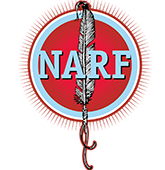Applications Open for Office of Child Care Non-Profit Organization Grants
On April 23, 2019, ACF’s Office of Child Care (OCC) announced the availability of funds and requested applications for:* American Indian and Native Hawaiian Nonprofit Organization Child Care Grant* Native Hawaiian Nonprofit Organization Child Care Grant Each of these competitive funding opportunity announcements (FOA) provides grant funding for a private, nonprofit organization to provide child care services through … Read more
